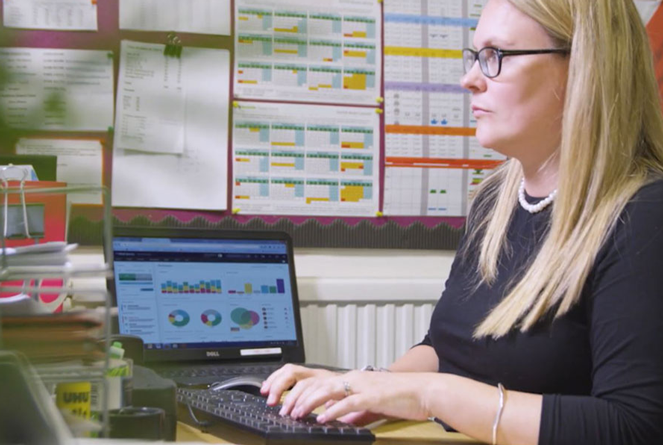Introduction
The UK’s 2025 Curriculum and Assessment Review marks a major milestone in redefining education for today’s learners. For secondary schools, it brings renewed focus on inclusivity, enrichment, and the skills students need to thrive in a rapidly changing world.
In this blog, we explore what the review means for secondary schools, including assessment continuity, curriculum flexibility, and the growing importance of data-led decision-making.
What the 2025 curriculum review aims to achieve for secondary education
The review positions the national curriculum as a strategic investment in the nation’s future—developing informed, capable, and resilient young people. It calls for a curriculum that is rich, aspirational, and challenging, with high expectations for all secondary students, regardless of background.
Teachers are described as the catalysts of this transformation: not just deliverers of content, but designers of learning experiences that inspire curiosity and critical thinking.
Changes to curriculum and assessment in secondary schools
A key focus of the review is ensuring that students transition smoothly from primary to secondary, with secure literacy and numeracy skills. Continuity between phases is vital so that learning momentum is not lost during transition points.
While the framework of Key Stages and qualifications remains “broadly working well,” the report identifies areas for improvement, particularly around how assessment supports both challenge and inclusion.
To meet these expectations, schools need effective tools to track progress, analyse outcomes, and target interventions. Juniper’s Sisra Analytics is designed for exactly this, helping teachers and leaders use assessment data to identify patterns, address gaps, and support students through every stage of their learning journey.
The EBacc and Broadening Student Choice
The review concludes that the EBacc performance measures have constrained subject choice. While maintaining academic rigour is essential, the system must offer students greater flexibility to pursue their interests and strengths.
Key recommendations include:
- Removing EBacc performance measures and associated accountability metrics.
- Retaining Progress 8 and Attainment 8, but renaming the EBacc bucket to “Academic Breadth.”
- Promoting inclusive approaches to accountability.
Though it remains to be seen how this shift will be implemented, it signals a move toward more balanced pathways and greater student autonomy.
Changes to social and technological learning in seondary schools
The review acknowledges the accelerating pace of change in society and technology. To thrive, students must develop digital literacy, media awareness, financial understanding, and oracy, skills that prepare them for higher education, work, and citizenship.
Embedding these areas across all Key Stages is essential, and tools like Sisra Analytics can support this transition, giving schools the insights they need to personalise learning and ensure every student achieves their potential.
Post-16 Education and the “V Level” Proposal
The report identifies significant gaps between the current post-16 pathways — A Levels and T Levels — and the needs of many students. To bridge this, it proposes introducing a third pathway: V Levels, aimed at offering a broader and more balanced route for learners.
Alongside this, the review recommends new Level 1 “stepped” qualifications in Maths and English for 16–19-year-olds who have not yet achieved a pass at GCSE. These modular, incremental courses would allow students to gain recognition for progress as they work towards Level 2, helping to build confidence and sustain motivation. However, leaders will need time, resources, and training to implement these changes effectively.
Inclusivity in the secondary curriculum
Representation matters. The report highlights that all students should feel part of their school community and understand one another’s perspectives. A more inclusive curriculum not only supports social cohesion but also enhances engagement and motivation.
Turning insight into action: what’s next for secondary schools
The 2025 Curriculum Review challenges secondary schools to strike the right balance between rigour, flexibility, and inclusion, empowering students to thrive both academically and personally.
At Juniper Education, Sisra Analytics helps schools turn assessment data into meaningful action, enabling teachers and leaders to see what’s working, where support is needed, and how to keep every student progressing with confidence.
In our next blog, we’ll explore the review’s proposed assessment reforms and subject-specific recommendations in more detail.
You can also catch up on our previous blog post, which looks at 'What the 2025 Curriculum Review means for primary schools'.


/Primary%20school%20.jpg?width=2000&name=Primary%20school%20.jpg)








.png?width=940&height=788&name=Lingfield%20College%20Case%20Study%20(5).png)
-1.png?width=1000&height=833&name=National%20Association%20of%20Head%20Teachers%20(3)-1.png)
-3.png?width=1080&height=1080&name=Untitled%20design%20(10)-3.png)





